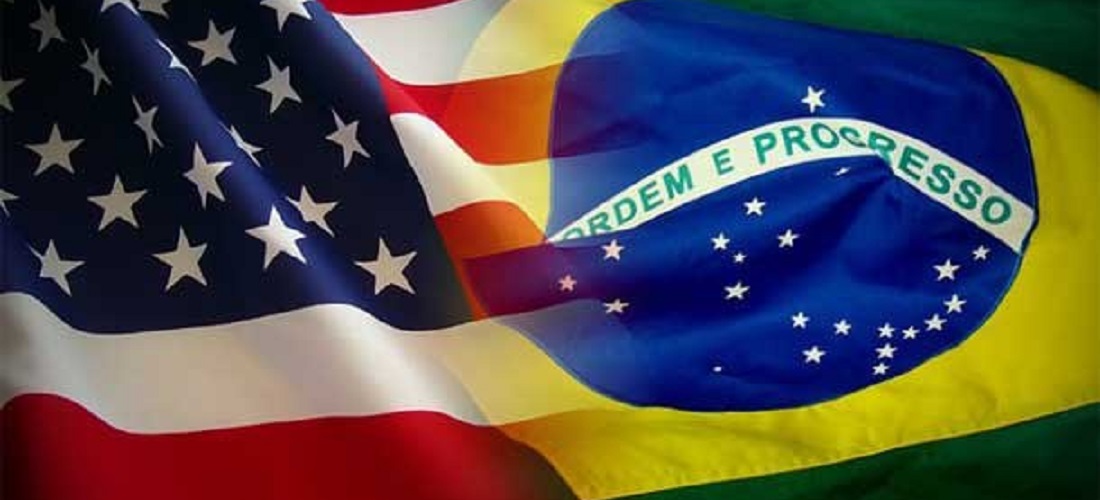
US looks into further taxing Brazilian products
Oct, 30, 2024 Posted by Gabriel MalheirosWeek 202441
The United States recently launched six investigations into three Brazilian products, a move signaling that Washington’s appetite for curbing imports and protecting domestic industry remains strong, regardless of who occupies the White House next.
Last week, at the peak of the presidential campaign season, the U.S. International Trade Commission (USITC) initiated two investigations (dumping and subsidy) on Brazilian exports of empty hard capsules, claiming they harm U.S. manufacturers.
On October 18, the agency voted to proceed with two investigations to impose additional tariffs on corrosion-resistant steel products from Brazil, also citing these products as “underpriced and subsidized” by the Brazilian government.
At the end of June, Washington approved final investigations (dumping and subsidy) to add tariffs on silicon iron imports from Brazil and other countries.
These new investigations carry the potential to disrupt sales swiftly as they generate uncertainty among market operators.
The U.S. already applies 13 antidumping or countervailing measures—additional tariffs—against Brazilian products, targeting various steel products, uncoated paper, natural honey, and lemon juice.
Aluisio Campos, a trade professor at American University in Washington, sees an “upward curve” in U.S. trade defense actions overall, regardless of the next U.S. president. He notes, “As the economy tightens, companies are scrutinizing the prices of imported goods more closely, especially when those goods become significantly cheaper, which drives up cases.”
The U.S. consistently runs a trade surplus with Brazil. There was some expectation that Brazil would finally achieve a surplus this year; however, between January and September, Brazil recorded yet another deficit, though smaller, at $1.2 billion in a total trade volume (exports and imports) of $60.1 billion for the period.
The chart below reveals the most exported goods in maritime containers from Brazil to the United States between January and August 2024. The data, extracted from Datamar’s DataLiner platform, comprise only maritime, long-haul shipments.
Top Exports in Containers to the US | 2024 | TEUs
Source: DataLiner (click here to request a demo)
Broadly speaking, trade policies and tools are increasingly being deployed not just to address trade-related issues but also to address geopolitical and security concerns.
Donald Trump has repeatedly threatened high tariffs on all countries, with the most severe measures reserved for China, to raise the costs of foreign goods and attempt to reconfigure global supply chains.
According to The New York Times, Trump’s team’s proposed tariffs would cover nearly all U.S. imports, amounting to over $3 trillion in goods.
The protectionist wave is expanding significantly, according to World Trade Organization (WTO) data: more than 130 new trade restrictions have been registered by the organization since the beginning of this year.
This marks an 8% increase in the stockpile of more than 1,600 restrictive measures introduced between 2009 and 2023, which last year already impacted over 10% of global goods trade.
Additionally, WTO members initiated 210 trade defense or “trade remedy” investigations in the first half of this year—nearly matching the total investigations conducted in all of 2023. While not all of these lead to tariffs, the chilling effect on trade is well documented.
On top of this, there is an influx of billion-dollar subsidies from several countries, including the U.S. and China, distorting trade flows.
As unilateral measures or their threats become increasingly commonplace, trade policy has grown more restrictive, manifesting in trade disputes.
Six of the eight new WTO disputes filed this year focus on green technologies, particularly electric vehicles. In recent months, the U.S., European Union, Turkey, and Canada have introduced new tariffs and countervailing duties on Chinese electric vehicles and other products, including steel. China has countered with WTO disputes and retaliatory measures against EU products like dairy, pork, and cognac.
WTO Director-General Ngozi Okonjo-Iweala remarked that “we are living in turbulent times.” Regarding trade, she noted, “the times are not just turbulent; they are tense,” during a recent IMF address, according to attendees.
Okonjo-Iweala warned that “trade is sometimes blamed and scapegoated for poor outcomes that actually stem from macroeconomic, technological, or social policies beyond trade’s control.” She expressed hope that “we’re not on a path back to the economic disorder that existed before Bretton Woods—a disorder that eventually led to political extremism and war.”
She reminded that multilateral economic institutions were created precisely to prevent the recurrence of that situation. Her concern today is that the world may have forgotten this lesson.
“Abandoning the legacy of Bretton Woods, including the trade system, would diminish the world’s ability—both collectively and nationally—to address issues affecting people’s lives and opportunities,” she added, according to one attendee.
Source: Valor Econômico
Original article avaiable for reading at: https://valor.globo.com/opiniao/assis-moreira/coluna/eua-abre-mais-investigacoes-para-sobretaxar-produtos-brasileiros.ghtml
-
Ports and Terminals
Dec, 23, 2024
0
Over 62 Million Tonnes of Cargo Handled at Paraná Ports
-
Meat
Mar, 15, 2023
0
Pork exports reach 34,867 thousand t in March
-
Other Logistics
Aug, 28, 2023
0
New agribusiness contracts drive surge in VLI’s maritime terminal in Sergipe
-
Other Cargo
Mar, 20, 2024
0
Exports pick up pace for Brazilian cotton market



